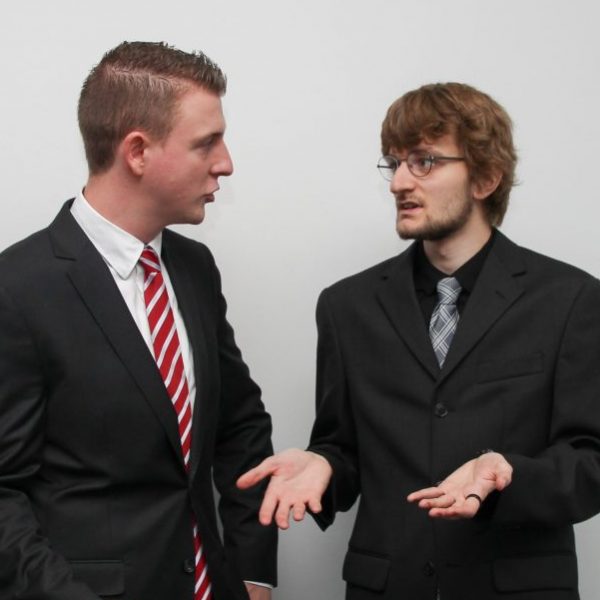Together with Richard Sennett

Richard Sennett, credit Thomas Struth
Following the success of The Craftsman, the renowned Richard Sennett further explores craft in Together: The Rituals, Pleasures and Politics of Cooperation, addressing how we can create a better society by learning to truly listen and cooperate with others, even when our interests are conflicting. Salon.com ran an excerpt from Together earlier this month, and now we have a conversation with Sennett about the ways in which cooperation builds personal and community gains in a variety of situations. It is as much part of everyday activity as it is vital to strengthening the ways we all work together.
Yale University Press: What characterizes effective cooperation?
Richard Sennett: Cooperation is natural to us as a species, but difficult sorts of cooperation–with people who are strangers, or whom we don’t like or don’t understand –that sort of cooperation takes skill. I think of cooperation as a craft. My book focuses on how people can learn to become socially competent in challenging situations. Together explores how to listening skills in discussions, informal ways of establishing mutual trust, ways of handling conflict face-to-face, and how social relations can be sustained even when specific tasks or projects fail. I ask about the political implications of social competence, and argue that the craft of cooperation is best practiced in politics from the ground up.
YUP: You cite examples from a vast array of cooperative enterprises. What was one of the most memorable examples of people working together you found in your research?
RS: The most memorable example was the relations employment counselors established with the unemployed in job centers. The task was daunting: the unemployed, particularly the long-term unemployed, have to re-tool how they manage their lives in an adversarial economy; this means often changing the patterns of behavior they had when in work. Good employment counselors work with them by practicing what I call “everyday diplomacy,” as colleagues sharing in a difficult task, rather than as mentors and instructors. I was equally struck by the ways Koreans and African Americans learned to cooperate in local communities in New York, in the wake of quite violent protests by African-American customers at the Korean grocery owners whom they felt were exploiting them. Again, both sides learned skills of everyday diplomacy which took them out of their established social habits.
 YUP: What do you see as the greatest obstacle to cooperation in our society today?
YUP: What do you see as the greatest obstacle to cooperation in our society today?
RS: There are two obstacles, one obvious, one not.
The obvious one is economic inequality – though this cliché has to be nuanced. All societies have hierarchies of some sort; the issue is how exactly people can or cannot bridge these differences. In my view, our society has common sets of educational, consumption, and work norms which apply to people with unequal resources; invidious comparison and disaffection result, making it difficult for people then to cooperate together. Our culture has a common standard for good work and success which most people are not able to fulfill; the same standards, ironically, drive apart. I’ve shown how this happens, for instance, in the back-offices of Wall Street financial firms, but it’s a more general issue at work. The practical consequences are lowered levels of productivity, weak institutional loyalty, and isolation from peers in the work-place. Put simply, inequality is isolating, driving people into themselves.
The other obstacle to cooperation has to do with cities. Modern cities are magnets to migrants, and they are complex places full of people who differ by lifestyle, religion, race, and ethnicity. We have yet to devise public spaces and public realms to bring these human differences together in consequent, arousing ways; instead, difference is coupled with separation into homogenous communities, and with indifference to outsiders. There was never a golden age in which cities succeeded in binding different groups vitally together, but today’s big cities have intensified the problem, since they are global in character – yet we have developed no distinctive solutions to making a highly complex society interactive on the ground.
YUP: You touch on the dangers of tribalism in your introduction to the book. Is cooperation ever a bad thing?
RS: Of course people can cooperate skillfully together to do bad things. That’s the nightmare most Europeans still harbor of Fascist and Nazi civil society; closer to home, we could point to racial lynchings in the Old South, to McCarthyism after the Second World War. All strong social bonds can a tribal side; in sociological lingo, this is “negative solidarity.” My belief, however, is that cooperation with people who are different can diminish negative solidarity. It’s a kind of cooperation which does not come easily to anyone, but has its own particular satisfactions. People who learn to work with those unlike themselves earn a kind of confidence, a sense of personal ability to manage complexity, which diminishes aggressiveness – the aggressiveness bred of fear of the Other. Together explores what social and political conditions can promise and promote this personal reward.
Richard Sennett‘s works include The Craftsman and The Culture of the New Capitalism, both published by Yale University Press. He founded and served as first director of the New York Institute of the Humanities and is now a professor of sociology at both New York University and the London School of Economics. You can visit his website at www.richardsennett.com.

























